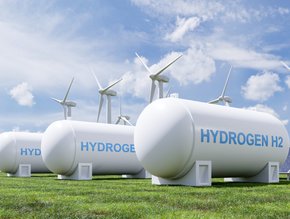G7 Coal Exit Deal Crucial to Positive Climate Leadership

In a landmark meeting, some of the world's largest and most influential countries have committed to moving away from coal, the fossil fuel that has the most detrimental impact on the environment when burned.
The Group of Seven (G7) agreed to “phase out existing unabated coal power generation in our energy systems during the first half of 2030s” in a further move to restrict unnecessary greenhouse gas emissions globally. This comes ahead of the annual G7 summit which is taking place between 13 and 15 June 2024 in Italy.
“It is the first time that a path and a target has been set on coal,” Gilberto Pichetto Fratin, Italy’s Minister of the Environment and Energy Security, who chaired last week’s meeting where this decision was declared, told the Guardian. “It is a very strong signal from industrialised countries. It is a big signal to the world to reduce coal.”

Agreeing on phasing out coal has taken several years of talks.
What is the G7 and what are its participating nations?
In recent years, there has been a growing recognition among G7 countries of the urgency of addressing climate change. Along with Italy, the G7 includes some of the world’s most advanced economies, including Canada, France, Germany, Japan, the United Kingdom and the United States. The European Union (EU) — as a unique supranational organisation — joins these countries as a non-enumerated member, meaning it is a member that does not assume the rotating G7 presidency.
Its history traces back to the early 1970s when it was an informal forum bringing together the heads of government and ministers of the world’s leading industrial nations. It complements the role of the G20, which is widely regarded as the framework for ongoing global economic coordination.
Because participating nations are some of the world’s strongest political forces, decisions taken by these major economic powers — such as the recent decree to move away from coal — have a monumental impact, rippling across other international organisations.
Many member states are vocal in their plans to accelerate the phase-out of coal and fossil fuels, as well as working together. This includes commitments to reach net-zero emissions by mid-century or earlier, which inherently requires a significant reduction in fossil fuel consumption.
What does the G7’s agreement mean from an energy perspective?
The agreement is regarding unabated coal, meaning countries can keep burning coal to generate electricity if power plants are fitted with sufficient carbon-capture technology.
It further gives wiggle room to countries that are heavily reliant on coal in offering the option of “a timeline consistent with keeping a limit of 1.5C” to keep global warming above pre-industrial levels. These countries, Germany and Japan, have their own sustainability plans. For example, Germany has set into law that it will put an end to coal power by 2038 at the latest.
With coal reliance differing across the G7 and wider world — for example, Canada and Italy’s coal power accounted for less than 6% of the generation mix, but 32% of Japan’s and 27% of Germany’s — it will take some time to reach the goals set to be reached by 2035. But with that date a little over a decade away, the pressure is on to set meaningful and successful action in motion.
*******************
Make sure you check out the latest edition of Energy Digital Magazine and also sign up to our global conference series - Sustainability LIVE 2024.
*******************
Energy Digital is a BizClik brand.






